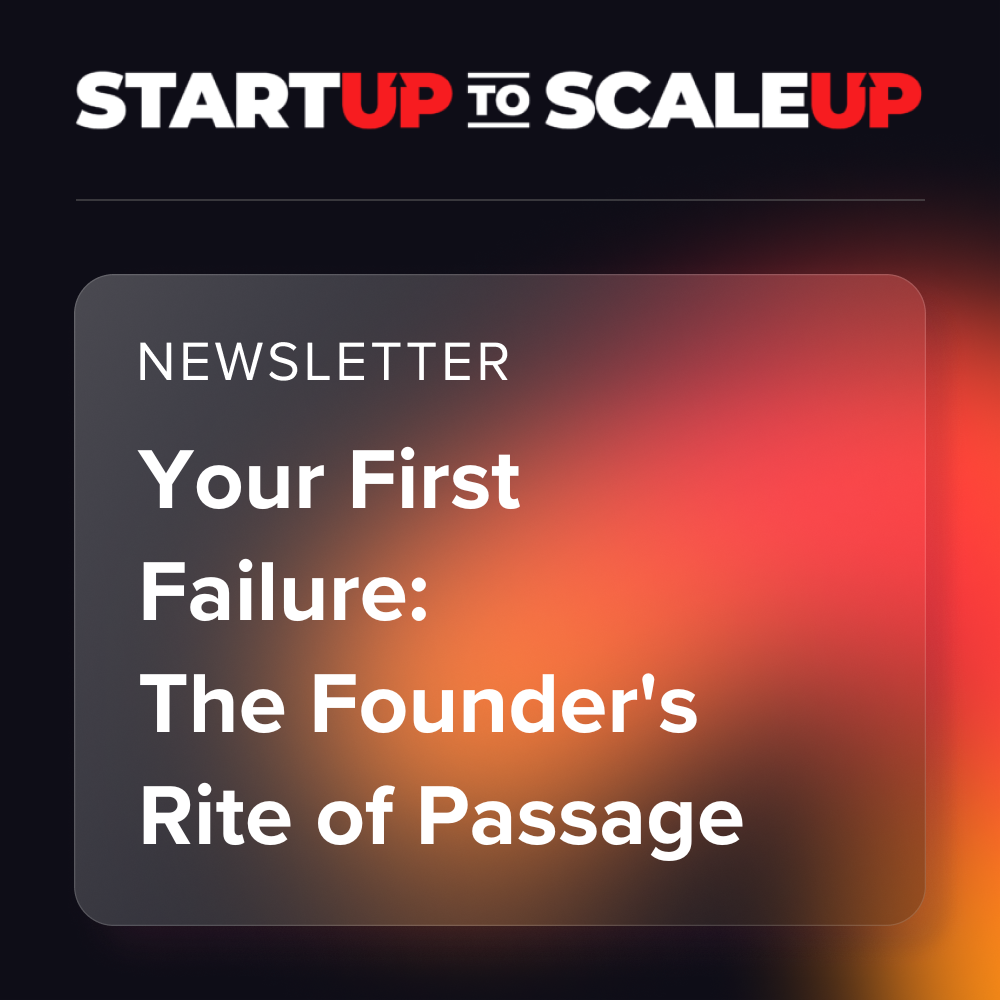Your First Failure: The Founder’s Rite of Passage
"Success is stumbling from failure to failure with no loss of enthusiasm."
— Winston Churchill

Dear Reader,
For StartUp Founders, failure isn’t a setback; it’s a rite of passage. If you’re in the arena but not taking the big swings. You might as well be a spectator. #YourFirstFailure (tweet this)
Failure is the founder’s crucible, the forge where true grit is tested. It’s the universe’s way of separating the tourists from the lifers. If you’re not failing, you’re playing it safe, and safe doesn’t disrupt, innovate or win.
Failure isn’t the opposite of success; it’s the path to it. It’s the tuition you pay to the school of hard knocks, and that school doesn’t offer scholarships. It offers lessons that compound into long-term success. (𝕏)
Book: “The Hard Thing About Hard Things” by Ben Horowitz. Unfiltered insights on tackling challenges that confront founders, from the founder of a16z.
Last Week: The Founder’s Blind Spot: Product Over Platform
Failure is the universe’s most brutal teacher. It’s not about failing fast; it’s about learning faster. It’s about building that resilience that turns a founder into a CEO.
You think your startup is your identity, but it’s not. It’s a chapter, not the book. The real advantage comes from the resilience and adaptability you gain through experience. Whether from setbacks or wins, each experience better equips you for the next challenge. These individual setbacks are just plot twists. You must turn setbacks into setups, because founders don’t let their startups fail.
You know that moment when you move a deal in the CRM from ‘Contract Sent’ to ‘Closed Won’ before the docusign was executed? That’s not just optimism; it’s founder hubris. When that deal falls through, which it will. It’s more than a setback; it’s a reality check that you might be a tad aspirational (delusional).
The angel investor who was all smiles and 100% in? A done deal. Then they ghost you. Your inbox becomes a graveyard of ‘just checking in’ emails. It’s a lesson in humility, so close to tasting victory, and then it’s gone. It’s more that just a failure, it feels like betrayal.
At these moments, the failure has to be converted from a setback to a catalyst for innovation. The failure forces you to rethink your approach, break from the status quo and show your resilience to get up and fight harder.
Don’t mistake resilience for overconfidence. Resilience helps you convert the unknowns to knowns. But overconfidence makes you think you’ve got it all figured out, stops you from asking the stupid questions that lead to breakthroughs and make you forget the power of luck. Keep your ego in check, stay curious, and remember that luck favors the prepared.
First-time founders get caught in this trap. The excitement. The adrenaline. The hype. It’s a siren song and it’s intoxicating. You start believing your own hype. You forget that the startup game is a long con, not a quick flip. Every verbal ‘yes’ feels like a win, but it’s not, it’s at best an indicator.
Not until the money’s in the bank, the customer’s onboarded, the code is shipped, and the metrics are up and to the right is a win a win.
Always remember that Howard Schultz was rejected 217 times before someone believed in Starbucks. Reid Hoffman, whose first venture was a “near-death experience” only to later build LinkedIn. AirBnB being rejected 100 times for just a ‘lil funding. Failure isn’t just common; it’s a rite of passage, and every single successful entrepreneur has the battle scars to prove it.
Embrace the grind. Keep on swinging. Until next week. Fail forward.
— James


